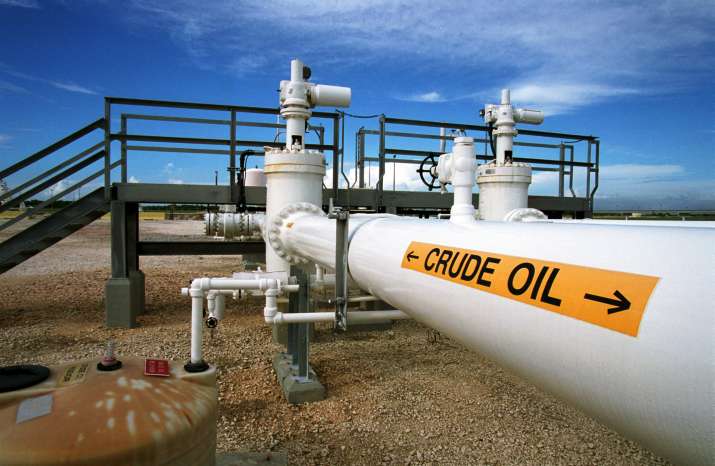Levy on Crude Oil: Government hikes domestic crude oil duty, cuts windfall tax, giving relief to fuel exporters

Highlights
- Government hikes duty on domestically produced crude
- Duty on crude oil increased from Rs 17,000 to Rs 17,750 per tonne
- The move will affect producers like ONGC and Vedanta Ltd.
Levy on Crude Oil: The central government has taken two major decisions amid the volatility in crude oil prices across the world. The government has increased duty on domestically produced crude oil, which will directly hurt the domestic oil mining companies ONGC and Vedanta. At the same time, in view of the fall in crude oil, the government has given big relief to the oil exporters. The government has reduced windfall tax imposed on diesel and ATF (aircraft fuel) in July.
As per the domestic notification, the tax on domestically produced crude oil has been increased from Rs 17,000 per tonne to Rs 17,750 per tonne. The move could affect producers like ONGC and Vedanta Ltd.
relief to exporters
According to the official notification, while the tax on export of diesel has been reduced from Rs 11 to Rs 5 per liter, it has been decided to do away with it on ATF. Similarly, zero tax on export of petrol will continue. India had imposed unexpected tax benefits for the first time on July 1. With this, it became one of the countries that tax the profits of energy companies. However, since then, oil prices in the international market have started falling, reducing profits for both oil producers and refineries.
Tax was imposed on July 1
On July 1, the government had imposed a tax of Rs 6 per liter on the export of petrol and ATF and Rs 13 per liter on the export of diesel. Apart from this, domestic production of crude oil was taxed at the rate of Rs 23,250 per tonne.
why tax was imposed
While imposing this tax on July 1, the government had said that due to the wildly rising prices of crude oil in the global market, the tax was imposed on exports to prevent the increase in the retail price of petrol and diesel in the domestic market. The aim was that instead of exporting the fuel refined here, companies should consume it in the domestic market, so that the supply can be better and the prices can be reduced. Since the implementation of this additional tax, the oil companies were opposing it.
why tax was imposed
While imposing this tax on July 1, the government had said that due to the wildly rising prices of crude oil in the global market, the tax was imposed on exports to prevent the increase in the retail price of petrol and diesel in the domestic market. This was aimed at getting the companies to consume the refined fuel in the domestic market instead of exporting it here, so that the supply could be better and the prices could be reduced. Since the implementation of this additional tax, oil companies were opposing it.
Latest Business News
function loadFacebookScript(){
!function (f, b, e, v, n, t, s) {
if (f.fbq)
return;
n = f.fbq = function () {
n.callMethod ? n.callMethod.apply(n, arguments) : n.queue.push(arguments);
};
if (!f._fbq)
f._fbq = n;
n.push = n;
n.loaded = !0;
n.version = ‘2.0’;
n.queue = [];
t = b.createElement(e);
t.async = !0;
t.src = v;
s = b.getElementsByTagName(e)[0];
s.parentNode.insertBefore(t, s);
}(window, document, ‘script’, ‘//connect.facebook.net/en_US/fbevents.js’);
fbq(‘init’, ‘1684841475119151’);
fbq(‘track’, “PageView”);
}
window.addEventListener(‘load’, (event) => {
setTimeout(function(){
loadFacebookScript();
}, 7000);
});
,





